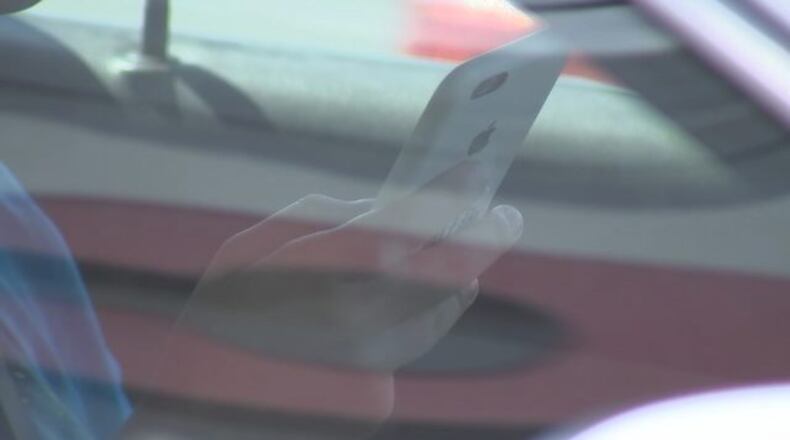After several public hearings and a lot of tweaks, legislation to crack down on distracted driving cleared a state House of Representatives committee on Wednesday.
House Bill 673 would require drivers to use hands-free technology when using cell phones and other electronic devices while driving. The goal is to pry our eyes away from cell phones while we're behind the wheel – behavior experts say has led to a spike in fatalities on Georgia highways and rising insurance premiums to boot.
But “hands free” isn’t as clear cut as it sounds. For example, the bill prohibits anyone from handling a “wireless telecommunication device” while driving. But, under the bill, you can still use radios, CB radios, CB radio hybrids, commercial two-way radios, subscription-based emergency communication devices, prescribed medical devices, amateur or ham radios and “in-vehicle security, navigation or remote diagnostics” systems.
Also “hands free” doesn’t just mean “hands.” The bill says a driver cannot “physically hold or support, with any part of his or her body, a wireless telecommunications device or stand-alone electronic device [for example, an iPod].” That means it can’t be on your lap, in the crook of your neck, etc.
You also can’t reach for such a device if it means you’re no longer in a seated, driving position or properly restrained by a seat belt (so no reaching over to scoop up a phone that fell on the floor).
The bill takes further pains to define exactly what Georgia motorists could and couldn’t do while driving if it becomes law:
Prohibited
*Writing, sending or reading any text-based communication, including a text message, instant message, e-mail or internet data while holding your device.
*Watching a video or movie other than watching data related to the navigation of your vehicle (i.e., your mapping app or GPS screen).
*Recording a video.
Allowed
*Speaking or texting while using hands-free technology.
*Using a GPS system or mapping app.
*There are circumstances where you can handle an electronic device while driving: Reporting a traffic accident, medical emergency, fire, a crime or delinquent act or a hazardous road condition. Oh, and you can use your hands if you’re lawfully parked (not at a stoplight – “lawfully” means off or beside the road in an area open to parking).
*Some people are exempt from the hands-free requirement if they’re performing official duties: police, firefighters, emergency medical personnel, ambulance drivers, other first responders and utility employees or contractors responding to a utility emergency.
State Rep. Bert Reeves, R-Marietta, chaired a subcommittee that hashed out all the details. He said the goal was to draft a law that was clear and enforceable.
Reeves also wanted a bill that could pass the General Assembly, which has rejected hands-free legislation in the past. That last concern led a House commission that studied distracted driving last year to forego recommending a complete ban on using electronic devices while driving.
Learn more about the toll of distracted driving – and legislative efforts to address it – here.
About the Author
The Latest
Featured


